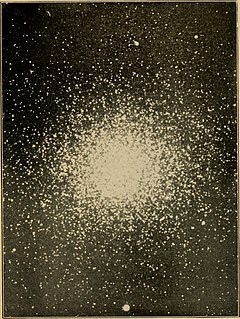|
Matthew 16:2b–3
Matthew 16:2b–3 (the signs of the times) is a passage within the second and third verses in the 16th chapter of the Gospel of Matthew in the New Testament. It describes a confrontation between Jesus and the Pharisees and Sadducees over their demand for a sign from heaven. It is one of several passages of the New Testament that are absent from many early manuscripts. The authenticity of the passage has been disputed by scholars since the second half of the 19th century. Text
Similar textsLuke 12:54-56
The passage in Luke has the following differences:
Gospel of Thomas, Logion 91:2
Manuscript evidence
C, D, K, L, (N), W, Δ, Θ, Π, f1, 22, 33, 565, 700, 892, 1009, 1010, 1071, 1079, 1195, 1230, 1241, 1242, 1253, 1344, 1365, 1546, 1646, 2148, 2174, ℓ 150mg, (ℓ 185, ℓ 211, ℓ 333, ℓ 950 δύνασθε γνῶναι), Byz/, it, vg, syrp, syrh, copbomss, eth, geo. Jerome included this passage in his Vulgate Bible, but he was aware that most of the manuscripts known to him did not contain it.[1] 794 contains the passage, but on the margin. 
א, B, V, X, Y, Γ, 047, 2, f13, 34, 39, 44, 84, 151, 157, 180, 194, 272, 274, 344, 376, 445, 539, 563, 595, 661, 699, 776, 777, 780, 788, 792, 826, 828, 852, 994, 1073, 1074, 1076, 1078, 1080, 1093, 1216, 2542, syrcur, syrs, copsa, copbomss, arm, Origen.
Marked with asterisks (*) or obeli (÷). Codex Basilensis, Codex Athous Dionysiou, 348, 707, 711, 829, 873, 905, ℓ 184.[2]
Minuscule 579 does not omit the passage but inserts it after verse 9. Present scholarsSome scholars regard the passage as a later insertion from a source similar to Luke 12:54–56, or from the Lukan passage itself, with an adjustment concerning the particular signs of the weather. Scrivener (and Lagrange) argued that the words were omitted by copyists in climates (for example Egypt) where a red sky in the morning does not announce rain. Manuscript evidence is strong and textual critics take the omission very seriously. Internal evidence also can be used against authenticity. In passage 16:2b–3 Jesus spoke to his opponents in the second person, but in verse 4 he speaks in the third person. Verse 4 can be treated as a direct answer to the request of verse 1.[3] Gundry argues for the originality of passage, because of some differences with parallel passage in Luke 12:54–56. It was not rewritten from Luke ad litteram. According to Weiss these verses cannot be adapted from Luke. Matthew used another, older source. Davies and Allison hesitate. According to Hirunuma, the "textual status of vv. 2b–3 must remain suspect".[4] According to Weiss and Tregelles the omission was a result of conformation to the preceding Matthew 12:38–39 (and also Mark 8:11-12).[4]
Theodor Zahn: The word γινωσκετε is used in a way that is unusual for the New Testament, where οιδα is used instead.[5] Fleddermann notes that "the form πυρραζει appears only in Byzantine writers, a further sign that the passage is a late interpolation".[6] Kurt Aland: "The saying in Matt. 16:2b-3 represents a very early tradition, as does the Pericope Adulterae in John 7:53-8:11. (...) Matt. 16:2b-3 may possibly have been suggested by Luke 12:54-56, but it is not a parallel in the strict sense. In any event both texts must have been admitted in parts of the Greek Gospel tradition at some time in the second century – a period when there was greater freedom with the text. Only then were such extensive insertions possible, but considering the amount of opposition apparently encountered by the Pericope Adulterae, it must have been quite strongly rooted in the evangelical tradition."[7] According to R. T. France, the passage is probably an early gloss, verse 4 follows directly after 16:2a, and "sign of heaven" was not explained in original text of Matthew, just like "sign of Jonah" from 16:4 which left unexplained.[3] See also
References
Further reading
External links
|
||||||||||||||

